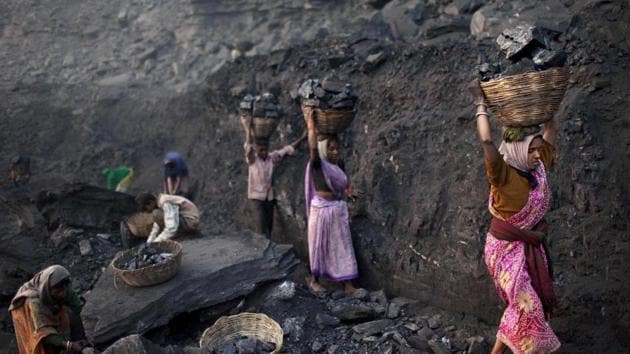Why Indian power companies must dump coal and bet big on solar, wind
According to Morgan Stanley, solar power in India has recently reached a tipping point, becoming more affordable than coal. Other Asian economies already seem to understand the dynamic of coal being highly risky.
The economics of coal-fired power generation is incredibly vulnerable, much more so than is recognised. Coal is particularly at risk from competition from low cost renewables, volatile commodity prices, growing concerns about air pollution, worsening water availability for cooling, the increasing incidence of heat waves that reduce operating efficiencies and, of course, necessary action to tackle climate change. These factors in combination are driving the structural decline of coal, led by China. According to Wood MacKenzie, coal use in China has dropped by 40% in the last five years.

According to Morgan Stanley, solar power in India has recently reached a tipping point, becoming more affordable than coal. Other Asian economies already seem to understand the dynamic of coal being highly risky. For example, South Korea’s newly elected President Moon Jae-In’s is moving to phase out coal and shift into solar and wind. Taiwan is expanding its renewable energy plans whilst reducing its reliance on coal by a third, from 45% to 30% by 2025.
Analysts now argue that coal usage in India will peak in the next five to 10 years. India will join China, and other East Asian economies, in halting new coal growth. No new coal plants are set to be commissioned for the coming decade, according to the Central Electricity Authority’s draft plan. And 37GW of old coal could be shut down, while Coal India is set to close 37 mines. This is the right approach and should be futher accelerated, otherwise Indian utilities focused on coal could face significant stranded assets and financial underperformance. This is what happened to European utilities that bet big on coal.
While Europe and India are at different stages of development, the European experience shows how investing in coal can go badly wrong. Between 2005 and 2008, European power companies planned to build 65 new coal-fired power plants, with 49 gigawatts (GW) of capacity, but only 12 were actually built. More cancellations are expected.
In Germany alone, 20 GW has been cancelled. The economics of existing plants have deteriorated too. For example, in the UK coal use fell by over half in 2016 and the country’s power system now experiences coal-free days for the first time since the 1880s.
New analysis from the University of Oxford Smith School of Enterprise and the Environment finds that unjustified optimism in the future of coal at a company-level combined with wishful thinking in sector-wide forecasting led to the proposed coal expansions that ultimately backfired.
The scale and pace of the decline in coal’s economic attractiveness is significant and provides a cautionary tale for Asian power companies, including those in India, and their investors.
Moreover, significant financial, human, and organisational capital was wasted taking forward so many coal projects through the development process. The proposed plants were also a major unwelcomed distraction for utilities just as the European power system entered an unprecedented period of technology, policy and market innovation.
European utilities completely misjudged the prospects for new coal-fired generation and have since paid a significant price for this mistake.
The implications for Indian power companies and their investors are crystal clear: Bets on new coal don’t pay off whilst solar and other renewables are both cheaper and much more resilient to the challenges and opportunities of the future.
Dr Ben Caldecott is director, Sustainable Finance Programme at the University of Oxford Smith School of Enterprise and the Environment.
The views expressed are personal



